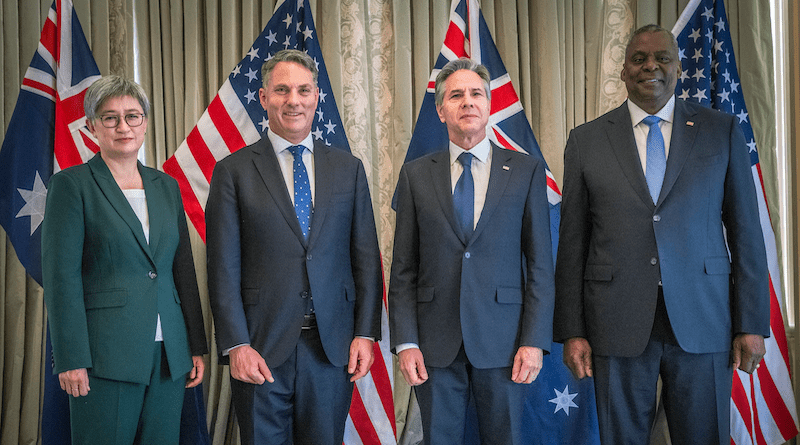The Julian Assange Rejection Should Prompt Australia To Make A New Defence Assessment – OpEd
Time for honest self-realization
After a long and drawn-out saga, the Australian Guantanamo inmate David Hicks was eventually repatriated back to Australia in 2007, after behind the scenes discussion between former prime minister John Howard and US president George Bush.
However, in Brisbane last Saturday, US secretary of state Antony Blinken rebuked prime minister Anthony Albanese’s attempts to secure the release of Wikileaks founder Julian Assange, who is languishing in Belmarsh Prison, awaiting extradition to the United States on 17 charges of espionage, and one count of computer misuse over the Wikileaks publication of hundreds of thousands of classified diplomatic and military documents back in 2010.
The Guardian, New York Times, and Der Spiegel, which jointly published the documents were never charged. US intelligence analyst Chelsea Manning stole classified diplomatic documents and miliary files, that Wikileaks later published. She has been treated much more leniently when former US president Barack Obama commuted Manning’s 35-year sentence to seven years, which allowed her to be released back in 2017.
This has all occurred within what has been touted as a new era of cooperation between Australia, the United Kingdom, and the United States. Our tri-lateral relations, were portrayed as rising to new levels.
Julian Assange has spent the last five years in the notorious Belmarsh prison, and 7 years before that inside the Ecuadorian Embassy in London, in fear of what is actually happening to him today.
Albanese, Rishi Sunak, prime minister of Britain and Joe Biden, the president of the United States, have met in person a number of times in person. However, Albanese and Australian foreign minister Penny Wong have failed in their attempts to put Assange’s case forward and getting a positive response, from the two AUKUS partners.
This is most probably not from any flaws in Albanese’s and Wong’s efforts. Rather, the message returned from Blinken in Brisbane reflects the distain the US now holds towards Australia.
The strength of the US-Australian relationship is sliding backwards, as there are now more strategically located US military bases further out in the South China Sea and East Asia, in their military pivot to Asia.
The Assange rebuke leaves Australia with an opportunity to have a deep and honest reflection about Australia’s position in the region, and who it’s friends really are.
We are to believe that exposing US war crimes is a more serious offense than committing war crimes. Australia has been an accessory for far too long in Vietnam, Afghanistan, and Iraq. Australia needs to reassess its moral compass here.
This should be a very serious wake up call. A time to evaluate the realities for Australia.
We have learnt from the Ukraine, that in event of any military action against Australia, there would only be enough hardware and ammunition to last a day or so, along some part of the nation’s coast. The ongoing Ukrainian conflict should open our eyes to how susceptible Australia is.
Our blind support for Ukraine has contributed to hundreds of thousands of Ukrainians to dying unnecessarily, in a war that could have been avoided.
The pushing forward of NATO across eastern Europe, and ‘freedom of navigation’ missions across the Taiwan Straits, are bringing military tensions unnecessarily to dangerous levels. What is this achieving? Only that to potential for nuclear war has never been so probably, since the 1950s.
These events should be reevaluated for the aggression they really are.
Still today, no one is talking about peace talks in Ukraine, or even talking to the Russia, except for China, which has tabled a peace plan.
The question that must be asked is what Australia doing, adding fuel to the fire, or genuinely seeking a safer future in the Indo-Pacific? An honest assessment is needed here.
It looks like Australia is a party to other agendas, than addressing the security and defence of the nation. This is an opportunity for Australia to dial back to what the nation really needs to do for itself.
Blinken may have presented Australia a time for a true self-realization. Its time to use it.

